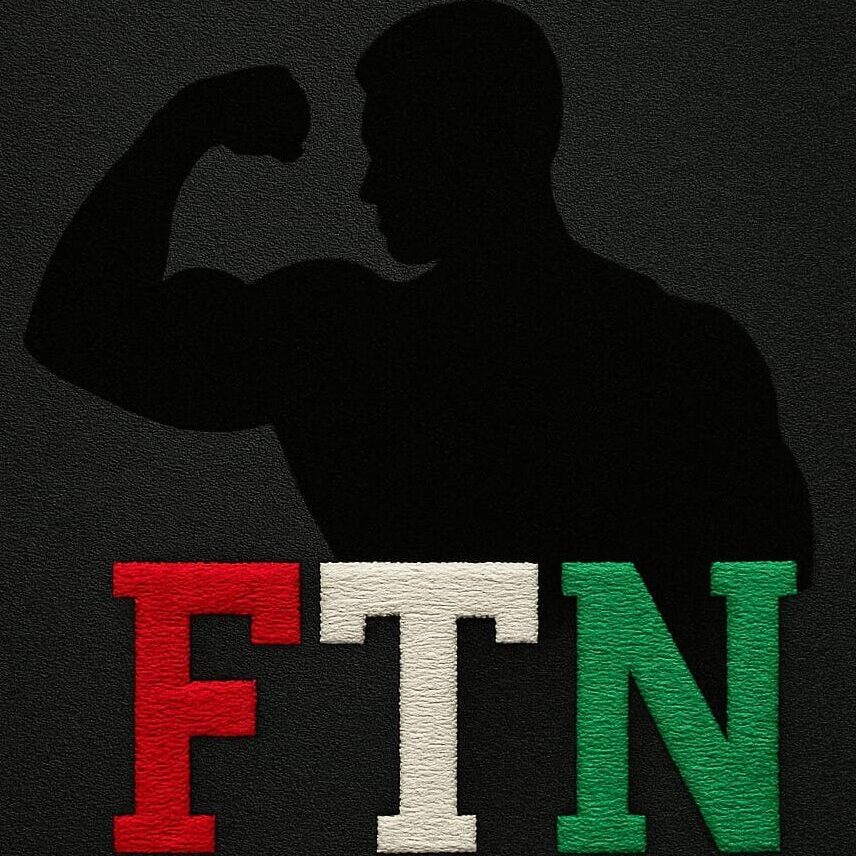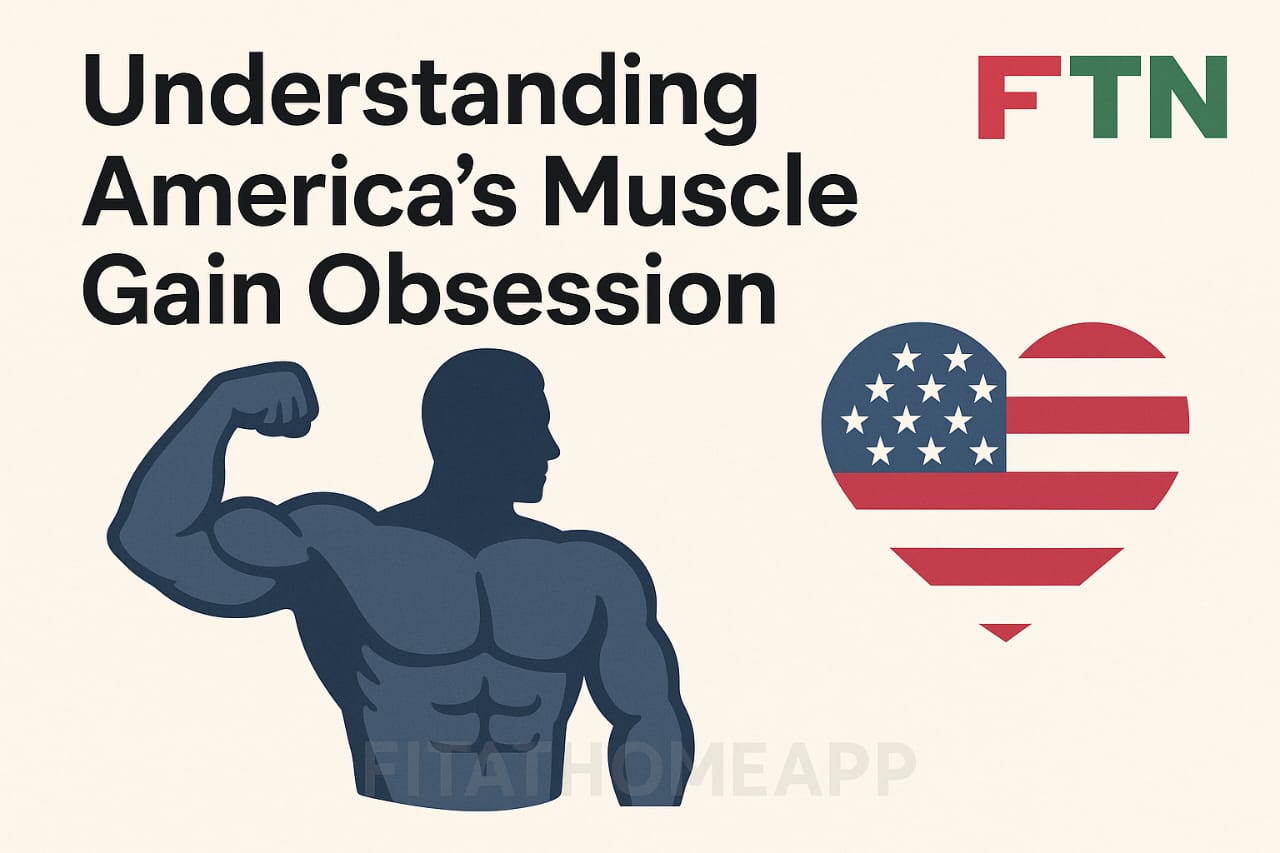🇺🇸 The American Obsession with Muscle Gain
Over the past decade, the U.S. has seen a growing obsession with building muscle, where aesthetics often take precedence over health. Across social media, movies, and advertisements, we’re bombarded with images of sculpted bodies and flawless physiques. These visuals have shaped an ideal that links muscularity with success, confidence, and desirability.
Fitness culture in America isn’t just about being healthy anymore—it’s become a social standard. From the gym to the workplace, being fit often translates to being respected, admired, and even envied. But this pressure to “look the part” can distort how people view themselves, leading to issues like body dysmorphia and unhealthy habits, including the misuse of steroids.
The pursuit of the “perfect body” has turned into a high-stakes game, where many seek fast results—even if it means compromising their long-term health. Steroids, though often illegal or misused, have become a shortcut for some, drawn in by promises of rapid gains and better performance.
🧬 The Science Behind Steroids: How Do They Work?
Anabolic steroids are synthetic compounds designed to imitate testosterone, the hormone responsible for muscle development and male traits. When introduced into the body, steroids:
Bind to androgen receptors in muscle tissue
Boost protein synthesis, which helps muscles repair and grow
Enhance recovery and reduce inflammation post-exercise
These effects allow users to train harder and recover faster—leading to noticeable increases in strength and size within weeks. Steroids also improve nitrogen retention, which is vital for muscle growth.
🧪 Forms of Steroids
Oral steroids (e.g., methyltestosterone): fast results but risk liver toxicity
Injectable steroids (e.g., testosterone enanthate): longer-lasting but may still disrupt hormones
Regardless of the form, improper use of steroids can seriously disturb hormonal balance and damage internal organs.
⚠️ Why Are People Still Using Steroids
Despite the risks, steroids continue to attract users from all backgrounds:
🏋️♂️ Bodybuilders
In the competitive world of bodybuilding, steroids are seen by many as a “necessary edge” to win competitions and build the ideal physique faster than what’s possible naturally.
🏆 Athletes
Athletes striving for top performance often face pressure to outdo opponents. Steroids promise more power, endurance, and quicker recovery—making them tempting even with the threat of bans or failed drug tests.
📸 Social Media Influence
Instagram and TikTok are filled with influencers showing off chiseled bodies, often without transparency about how they got there. This leads to unrealistic expectations, pushing everyday gym-goers to explore chemical shortcuts to keep up.
🧠 Psychological Motivations
Steroid use is not always about competition—it can stem from low self-esteem, body image issues, or the desire to feel more attractive or confident. For some, their identity becomes tied to their appearance, fueling risky decisions.
⚕️ The Hidden Costs: Health Risks of Steroid Use
While steroids may offer fast gains, they come with a long list of potential health problems:
❤️ Cardiovascular Damage
High blood pressure
Increased cholesterol
Higher risk of heart attacks and strokes
🧬 Hormonal Disruption
In men: testicular shrinkage, reduced sperm count, breast tissue development
In women: deeper voice, facial hair, menstrual issues
Long-term fertility problems
🩺 Liver Toxicity
Especially dangerous with oral steroids
Can cause tumors, liver damage, and even liver failure
🧠 Mental Health Issues
Aggression and mood swings (“roid rage”)
Anxiety, depression
Potential for dependency and addiction
These consequences can be life-altering, far outweighing the short-term physical improvements.
⚖️ Legal and Ethical Dilemmas
In the U.S., anabolic steroids are classified as Schedule III controlled substances, meaning:
You need a prescription to use them legally
Illegal possession or distribution can lead to fines and jail time
🚫 In Sports
Organizations like the NFL, MLB, and NCAA enforce strict anti-doping policies. Athletes who get caught face suspensions, loss of endorsements, and damage to their reputation.
🧩 The Ethical Question
Is it fair to enhance performance through artificial means? Many believe it undermines natural talent and hard work, creating an uneven playing field. Even outside of competitive sports, steroid use fuels unrealistic beauty standards, putting pressure on others to follow suit.
✅ Healthy Alternatives to Steroids
There are safe, effective ways to build muscle without sacrificing your health.
🥩 Smart Nutrition
Prioritize protein-rich foods: lean meats, eggs, legumes, dairy, tofu
Balance carbs and healthy fats
Maintain a caloric surplus to support muscle growth
Stay hydrated and time your meals around workouts
💊 Natural Supplements
Whey protein
Creatine
BCAAs
Beta-alanine
While not as powerful as steroids, these can enhance performance naturally when paired with proper training and nutrition.
🏋️♀️ Effective Training
Focus on compound movements: squats, deadlifts, bench press
Use progressive overload to gradually increase weights
Prioritize rest and recovery
Incorporate cardio to boost stamina and heart health
Natural gains may take longer—but they are sustainable, safe, and genuine.
🗣️ Real People, Real Stories
Behind every steroid user is a story.
John, a former competitive bodybuilder, turned to steroids in his early 20s to win national titles. While he achieved his goals, he later suffered severe hormonal issues and now warns young athletes about the dangers.
Sam, a recreational gym-goer, considered steroids after feeling left behind by peers. After researching the risks, he chose a holistic approach, gaining muscle steadily over two years and improving his mental health along the way.
Maya, a fitness model, used steroids under medical supervision. Although she reached her physique goals, she eventually experienced mood swings and liver issues that made her regret the choice.
These stories highlight how the road to muscle gain is never as simple—or safe—as it may appear.
👩⚕️ What Experts Say
👨⚕️ Medical Doctors:
Warn about heart and liver damage, hormonal dysfunction, and the irreversible side effects of long-term use.
🍽️ Nutritionists:
Emphasize that muscle gain is possible through diet and supplementation—no drugs required.
🧠 Psychologists:
Stress that steroids can worsen underlying mental health issues, like anxiety or body image disorders.
💡 The Verdict:
Most health professionals agree: the risks far outweigh the benefits, and the emphasis should be on natural methods that build both muscle and mental resilience.
🧾 Final Thoughts: Is It Worth It?
So, is using steroids for muscle gain really worth the risk?
If you value short-term wins over long-term health, steroids may seem tempting. But when considering:
The legal consequences
The physical and psychological damage
The financial cost
And the loss of authenticity…
…the answer becomes clearer.
Muscle gain should be a journey of discipline, self-discovery, and health—not a race to the top with shortcuts that could cost you everything.
Be smart. Be strong. Do it the right way.
🎥 Watch this informative overview of how steroid use can damage both your mind and body:
My Personal Insight – “How Juicing Can Wreck Your Mind and Body”
This video provides a candid and impactful breakdown of how steroid use can devastate mental health and overall wellbeing. Dr. Chris Raynor doesn’t just highlight physical symptoms—he explores the emotional instability and mood disruption that often follow.
What resonates most is the raw clarity with which the mental consequences are explained—how the perceived short-term benefits pale in comparison to lasting psychological damage. To enhance its relevance for young readers, a brief segment from former users or teen-specific warnings would drive the message home further.
Ultimately, this video echoes your article’s core message: true strength and confidence are built through discipline, awareness, and healthy choices—not shortcuts that can shatter lives.

